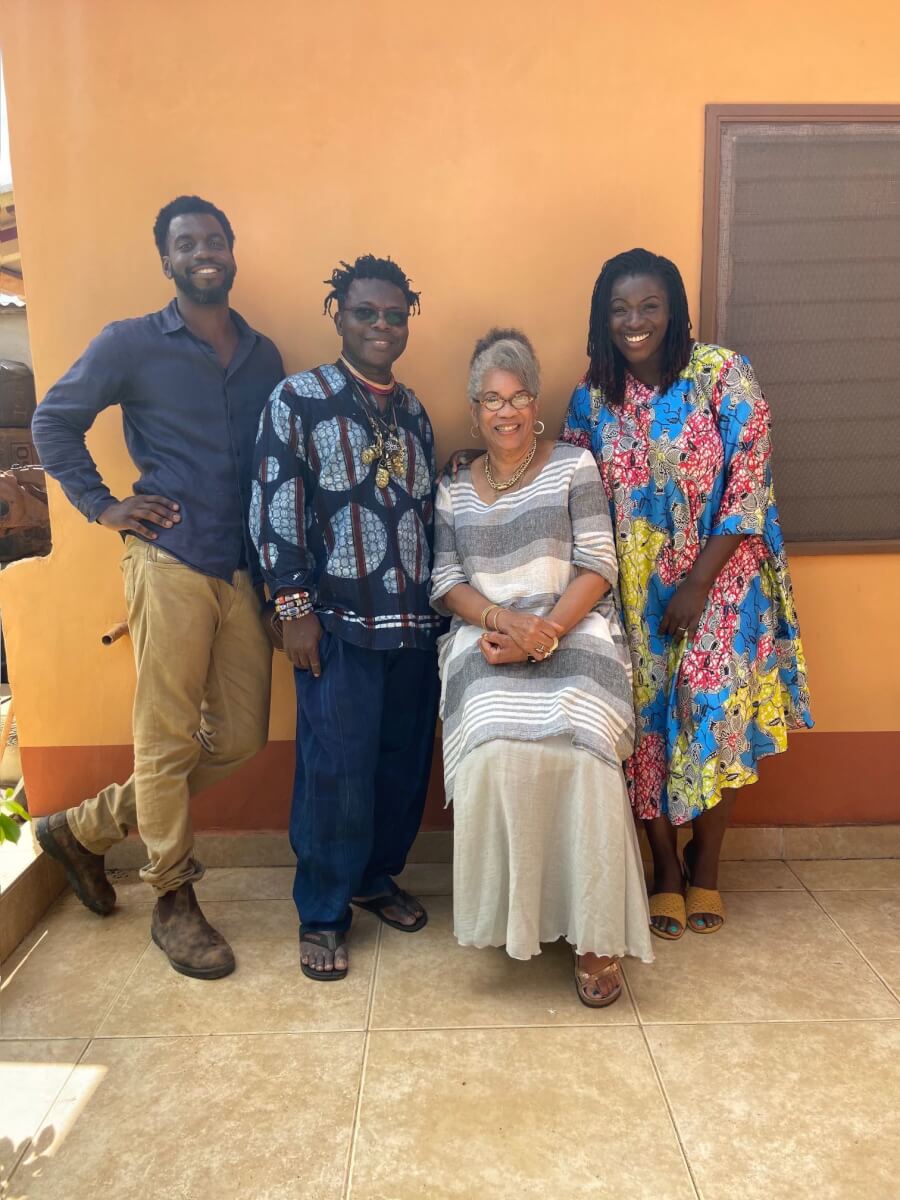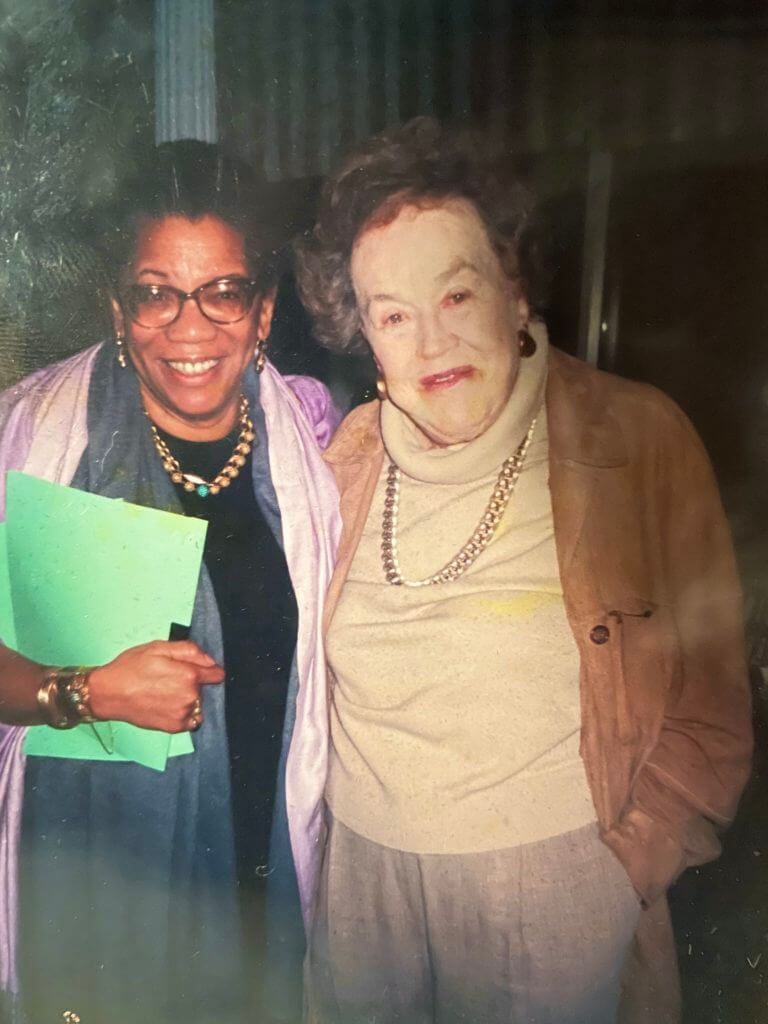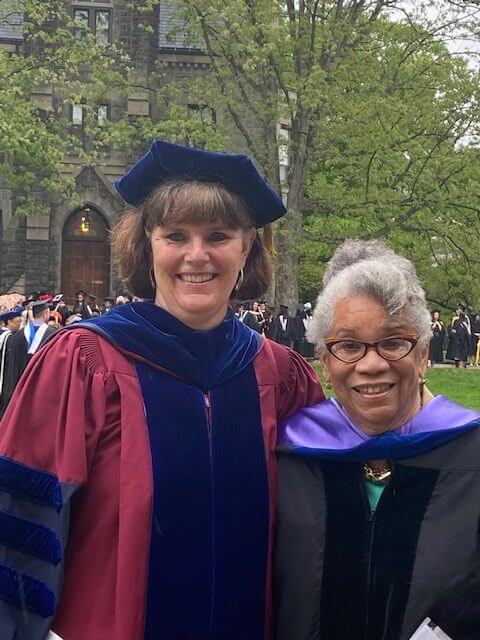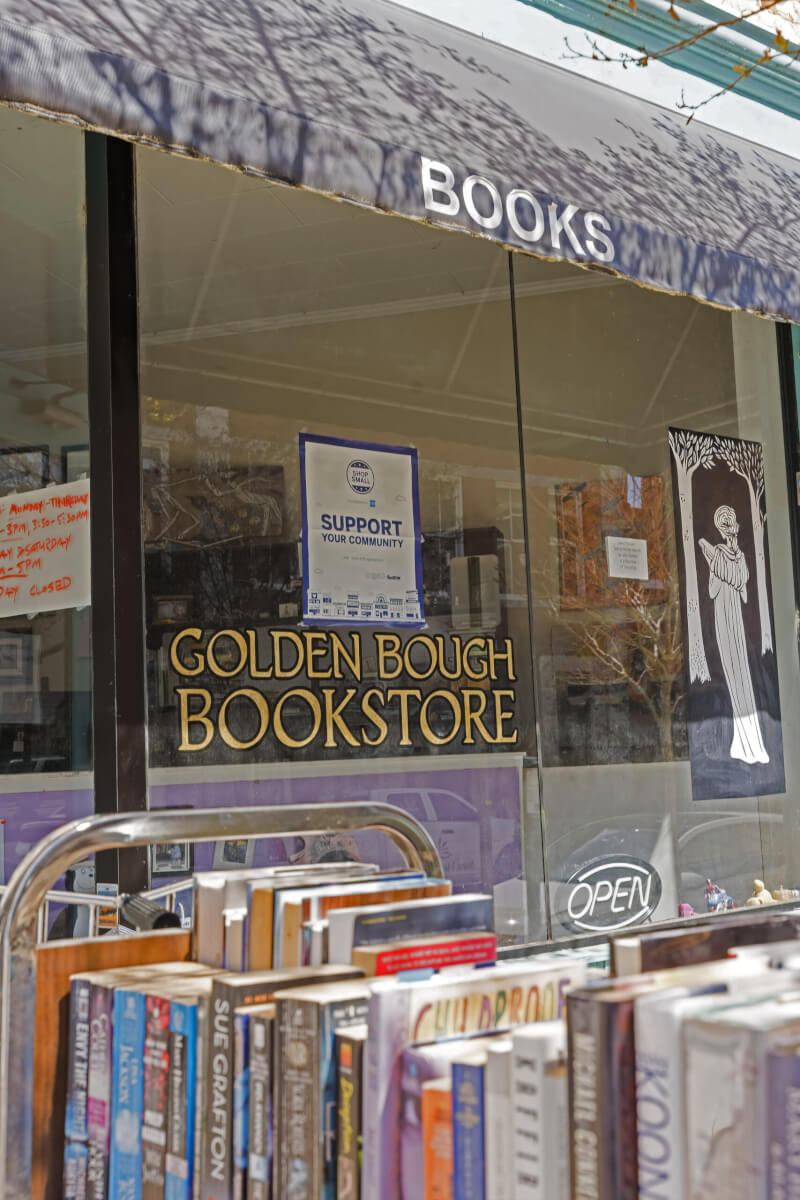
Southern culture and community in the kitchen
An evening with Dr. Jessica B. Harris
By Dodie Bickley
Photography provided by Jessica B. Harris
If you’re born and bred from southern roots, you probably know exactly what someone means when they say they’re living or eating “high on the hog.” Whether those words have ever come out of your mouth is another topic altogether, but they are powerful enough to have launched the Netflix docuseries titled High on the Hog: How African American Cuisine Transformed America, inspired by culinary historian Dr. Jessica B. Harris’s acclaimed book of the same name. Harris’s work specializes in food of the African diaspora, and her writing and teaching on the topic have led to her recognition as a respected authority in the culinary world.
About five minutes into the first episode, viewers see Harris strolling through a color-punched market in the streets of Cotonou, a port city in Benin, West Africa, with the show’s host, Atlanta-born food writer and sommelier Stephen Satterfield. “I don’t think that my work would have been possible without her work,” he said.
As Harris and Satterfield wind their way through the busy market, stopping to examine overflowing baskets of fern-green okra, black-eyed peas bobbing in rich gravies, and women explaining the unique properties of the various mounds of rice piled in their stall, the market provides visual evidence of Harris’s lifelong study of food and how the transatlantic slave trade indelibly influenced American food and agriculture. It’s an influence that Satterfield said changed the trajectory of his life.
“As a young culinarian…I was the only Black person my class,” Satterfield said. “I was the only Black sommelier in my group. I began to have a sense that I would never be able to find or learn about the contributions of my own people in relationship to the trade that I had chosen and love. Food. Beverage. Hospitality.”
Then, in 2007, Satterfield discovered Harris’ work. “I started to realize that I had just been looking in the wrong places and that our contributions were not only real and valid but that we have an incredible scholar who was a brilliant writer who was protecting those histories,” Satterfield said.
Harris’s extensive body of work includes 50 years teaching at the college level; writing and editing for Essence magazine; twice receiving the prestigious James Beard Foundation Award, among other high achievements; and, throughout her journey of teaching and learning, authoring more than a dozen books, including cookbooks and a memoir. At 6 p.m. on Nov. 16, 2022, Harris will visit Macon, Georgia, as the featured speaker of the Jordan Massee Lecture Series on Southern History and Culture. It’s not her first visit to our community, but it does carry special import.
“I knew Jordan…we bonded…we talked about food, and we talked about its connections, and we talked about how it connects people,” Harris explained.
Carey Pickard, vice president of The Compass Group, helped facilitate that connection and extended the invitation to Harris to serve as this year’s speaker at the annual Massee Lecture. Pickard met Harris at a “Georgia on My Plate” event when Atlanta hosted the 1996 Summer Olympics Games.
“I recognized her as someone extraordinary. She has a deep and nuanced understanding of the influence of food,” Pickard said.
So, Pickard introduced Harris to his friend Jordan Massee: “You could see him [Massee] at his best around Jessica. They really bonded over food, but food as a way of looking at the world.”
Massee’s way of looking at the world was influenced by a life that began when he was born into a wealthy family and raised in the landmark mansion — known as “The Massee” to locals — on Macon’s College Street. He traveled widely and spent decades living in New York City, where he spent time with his cousin, the famed novelist Carson McCullers, and her circle of friends, including playwright Tennessee Williams. Rick Hutto compiled and edited Accepted Fables, Massee’s autobiography published posthumously following Massee’s death in 2002 at age 87, and founded the Jordan Massee Lecture Series.
“I think Jordan would be delighted that Jessica is the speaker this year,” Hutto said.
“These two extraordinary minds,” Pickard added, “Jessica and Jordan are cut from the same cloth.”
That word — extraordinary — came up regularly when talking with those who know Harris. European culinary antiques expert Kerry Moody used it to describe a woman he said is like a sister to him. He’s known Harris for 30 years and clearly remembers the day he was working at Lucullus Antiques in New Orleans when she walked into the shop.
“When she told me her name, I said, ‘THE Jessica Harris?’ And she nodded,” Moody said. He went on to tell her that he had all of her cookbooks. “I don’t know if she believed me, but I asked her, if she was going to be in town, I would bring them in and perhaps she could sign them for me,” he said.
He did. And she did. And as their friendship grew over the years, Moody credits Harris with the opportunity to meet another world-famous food expert: Julia Child.
“Jessica was in town writing an article for Essence magazine about Julia Child’s visit to New Orleans, and I get a phone call saying, ‘Julia Child would like to visit Lucullus.’ She’s never told me, but I think Jessica suggested that Julia stop by,” Moody said.

Harris pictured with Julia Child
Child is known for familiarizing American cooks with French cuisine. Harris posits there’s a reason why French food gained its international reputation: “I think…part of the reason that French cuisine, las cuisine française, is considered to be all of that is because it’s codified.”
Harris said she is working with the Culinary Institute of America and that the school has recently established a concentration in the food of Africa and its diaspora in the Americas. The program may be one step, among others, toward codification of these influential foodways.
“I think things need to be codified. You can put anything on a plate and call it jerk. What is jerk? It has a particular history, a particular origin, and particular components to be called jerk,” Harris explained. “In some ways, you have to name it and define it in order to claim it.”
Harris’s research and writing are vital to establishing that baseline. Mercer University professor Dr. David Davis said Harris’s work is based on decades of research on how foods originated in Africa and were reimagined throughout generations and throughout the New World.
“We can really credit Jessica,” Davis explained, “because she has pioneered the study of African American foodways. Her work is primary, archival, historical work, and she does it in a way that is accessible to popular audiences.”
Davis met Harris shortly after he arrived in Macon 15 years ago to teach southern literature at Mercer University and decided he would use southern foodways to engage his students. He met Harris at a conference in New Orleans at the time when she served as the inaugural scholar in the Ray Charles Chair in African American Material Culture at New Orleans’ Dillard University.
Following a roundtable discussion on food in southern literature, Davis said Harris encouraged him and his friend Tara Powell to edit a collection on food in southern literature. They eventually published that collection as Writing in the Kitchen: Essays on Southern Literature and Foodways, with Harris writing the foreword for the book.
Davis said Harris deserves the recognition she is receiving for a lifetime of work on a topic that been undervalued. “It’s a recovery mission in a way…a really crucial recovery…. We all share equally. We all have eaten from the same pot,” he said.
If southern cooking, culture, and, yes, even the guilty pleasure of binging Netflix make it onto your list of favorite pastimes, then you might add attending this year’s Jordan Massee Lecture Series on Southern History and Culture to your list as well. When Harris speaks at the Hay House on Nov. 16, the audience will learn much about the history and influences of the African diaspora in the Americas.
Satterfield provided some additional advice for attendees: “Listen intently. Her name and her work belong in the pantheon of great Black intellectuals of the 20th century with people like James Baldwin and Maya Angelou.”
Those are familiar names to Harris. In her memoir, My Soul Looks Back, she writes of her younger days in New York and her relationships with both Baldwin and Angelou. In fact, Angelou composed the foreword to High on the Hog, and if you listen intently, you might just learn the history behind that phrase.
But Satterfield and others contend that there’s more to learn from Harris beyond food and the universal shared human need and appreciation for it. “We are who we are today because of the African foodways,” Pickard expressed.
When Harris speaks at the Hay House next month, she will undoubtedly talk about the lecture series’ namesake as a friend but also as an example of the power and impact that food has on all of us beyond mere physical sustenance. “That we never got a chance to really deepen our friendship is certainly a regret, but I very much savor, to use a culinary term, the time that we spent together,” she said. “That was…an example of…the ability of food to connect people, and I think it does.”

Harris with Kim Cassidy, president of Bryn Mawr College, Harris’s Alma Mater, where Harris gave the 2022 commencement address.







